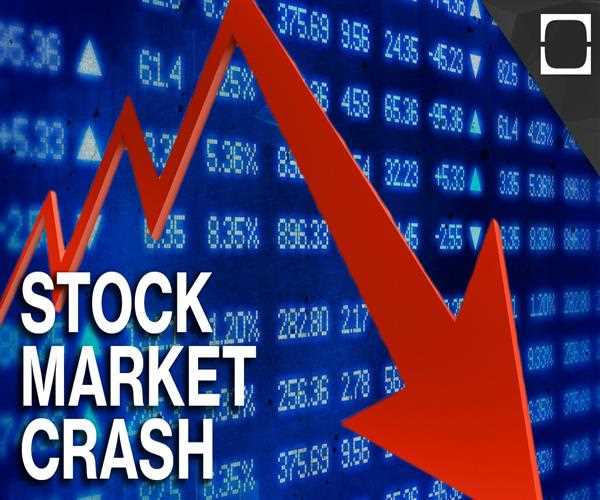A stock market crash occurs when stock prices suddenly drop to a level that is much lower than their previous levels. This usually happens due to a sudden and sharp drop in demand for stocks, usually in a crisis situation. It can be caused by economic shock, political unrest, or a sudden and unexpected change in investor sentiment.
A stock market crash can also be caused by a sudden decrease in the amount of money available for investment, caused by a recession or financial crisis. When this happens, investors may have to liquidate some of their assets to make up for the lack of funds, resulting in further decreases in stock prices. This can cause a chain reaction of further drops in stock prices, resulting in a stock market crash.
Another way a stock market crash can occur is due to a sudden shift in investor sentiment. A negative event, such as a major scandal or terrorist attack, can cause investors to panic and sell their stocks, leading to a rapid decline in prices. Similarly, a lack of confidence in the economy or government policy can cause investors to lose faith in the markets and sell off their investments.
Finally, geopolitical events can have a huge impact on stock markets and can lead to a crash. For example, the Brexit vote in 2016 led to a sharp decline in the UK’s stock market and currency, as investors were concerned about the uncertainty created by the vote. Similarly, the US-China trade war has had a negative effect on the markets of both countries.

When a stock market crashes, the immediate result is a decrease in the prices of stocks. This causes investors to sell their stocks at a loss, resulting in a further decrease in prices. As a result, investors tend to become less willing to invest in the stock market, causing prices to drop even further. This can lead to a spiral of selling, where even more investors are selling their stocks in fear of further losses.
The effects of a stock market crash can be felt across the economy. It can cause businesses to suffer financially due to decreased consumer spending, and investors may see their portfolios drop significantly in value. The decrease in consumer spending can lead to layoffs and a drop in consumer confidence, which can further reduce economic output.
The long-term effects of a stock market crash can be even worse. It can cause a decrease in investment spending, which can lead to a decrease in economic growth. This can lead to a decrease in wages and employment, and further drops in stock prices.
Fortunately, stock market crashes can be prevented by taking steps to increase investor confidence. Governments can intervene in the stock market by providing incentives for investors to keep investing, and by providing support to companies experiencing financial difficulty. In addition, investors can diversify their portfolios to reduce their risk of losses and can make sure to have adequate emergency funds available for potential losses.